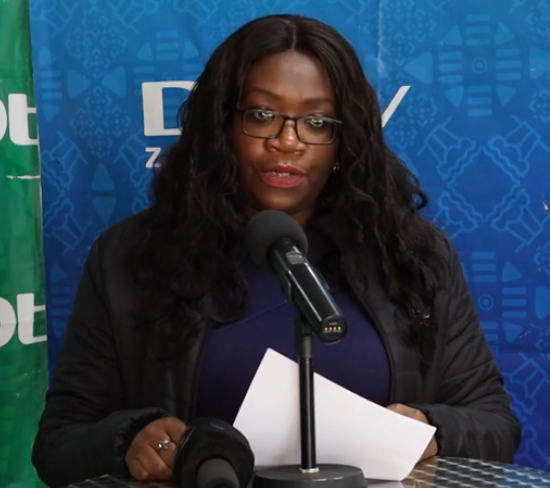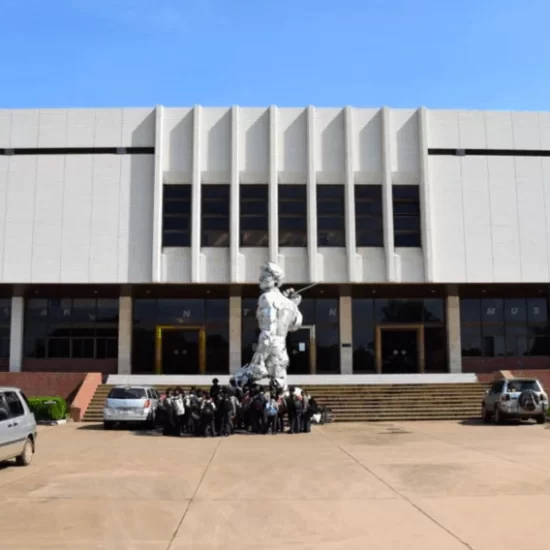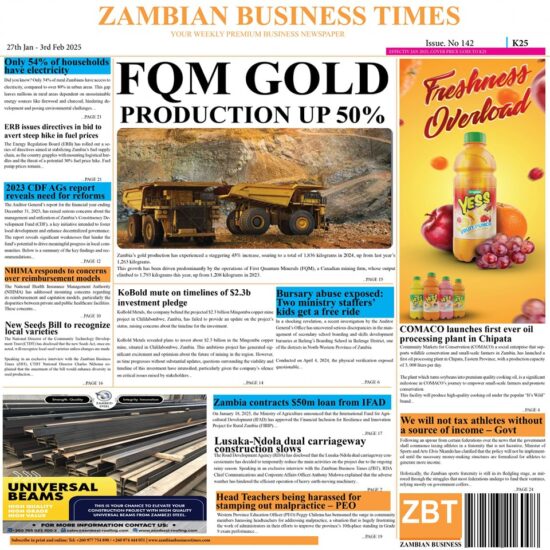Print and electronic media institutions in Zambia have expressed concerns over being omitted as beneficiaries covered by the statutory instrument (SI) No. 67 of 2023 which saw the suspension of customs duty on the importation of selected media equipment’s, music and film equipment.
According to Statutory Instrument (SI) No. 67 of 2023, government suspended customs duty on the importation of selected equipment’s used in broadcast media, music and film industries for three years but has only covered institutions under the independent Broadcasting Authority – IBA and National Arts Council leaving out Print and electronic media which are regulated under the National Archives.
The regulations which came into operation on January 1, 2024 is expected to come to an end on December 31, 2026.
And the description of goods whose duty was waived include importation of goods such as loud speakers, headphones and earphones, microphones, audio frequency electric amplifiers, transmission apparatus and television cameras among other goods.
Meanwhile, the fact that print and electronic media equipment’s were not included in the above SI has disadvantage one important sector within the media industry. Media Owners Association – MOAZ has wondered why print media equipment’s where left out when both print and broadcast media play an equal role in informing the masses.
Speaking during the Zambia Revenue Authority (ZRA) and the Media Owners Association workshop in Lusaka attended by the Zambian Business Times -ZBT, News Diggers Managing Editor Joseph Mwenda who is the Chapter Chairperson said that the fact that print media houses were not included in the SI is unfair and unfortunate.
Mwenda said that the qualifications for the SI has also limited print media owners in that the qualifications needed for one to import the duty waved equipment’s requires one to be registered with IBA and the National Arts Council both of which are not regulators of the print and electronic media.
He further wondered why government neglected print media equipment’s for the waiver when both print and broadcast media houses play the similar roles in informing the public.
“The print media has not been considered in this statutory instrument and when you talk about the media obviously it’s not only radio and TV. There are news papers in print and eCopy also which are operating in the same jurisdiction and it’s extremely unfair and unfortunate that when I was looking at the list of equipment’s which are exempted there is no printing press or equipment that print media houses use,” he said.
“You will also see that the qualifications needed for one to import the duty waved equipment’s requires one to be registered with IBA and the National Arts Council both of which have nothing to do with the newspaper because print media houses are registered and licensed by the National archives of Zambia. So, I don’t know why ZRA could not remember that newspapers have been neglected,” said Mwenda.
At the same workshop, Zambian Business Times Managing Editor Donald Mumba requested ZRA who are also tax advisors to the government to consider proposing having the SI to be re-issued with the omission of Print and electronic media houses duly included.
Meanwhile Zambia Revenue Authority (ZRA) Customs collector Chibule Shakapanga urged those qualified to take advantage of the 3 years suspension of customs import duty before it expires.
Shakapanga further stated that there will be need for further engagements with the government for the sidelined print media houses to be considered.
“Take advantage of the statutory instrument before it expires. If they are people who feel they have been left out, it calls for further engagements so that perhaps you can be included,” said Shakapanga.
Meanwhile Media Owners Association of Zambia (MOAZ), President Costa Mwansa emphasized on the need for actions to be taken on the various concerns raises by media owners.




See insights and ads
All reactions:
66







